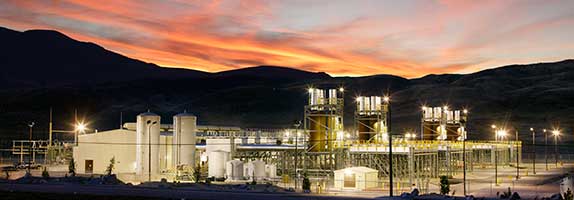

About Marine
The oil & gas industry was plunged into turmoil when the oil price crashed in 2014. To get back on track, the industry has been forced to transform. It has been forced to figure out new ways of working and apply new solutions to remain profitable while oil price fluctuates. The question that oil companies and drilling contractors are asking is this: can the environmental footprint be reduced while at same time lowering OPEX? Fortunately, the answer is yes.
Carrying out sustainable OPEX reductions is no simple matter. It involves, among other things, careful risk management, refined cost predictions and an increased focus on remote services. The latter can be used to maximise the availability of the equipment, optimise fuel expenditure and prevent unforeseen issues. With the responsibility for fuel costs increasingly shifting from oil companies to drilling contractors, such services can significantly impact the profitability of the contractor’s operations.
“Oil and gas will play a significant part in the energy mix in the future, we cannot argue about that. But, as contradictory as it sounds, the environmental footprint of the oil and gas industry can and should be reduced. Our contribution is to provide smart technologies that enable step changes in efficiency and provide environmental and financial benefits,” says Jesper Bonde, General Manager, Oil &Gas, Wärtsilä Services.
Greener operations are good for business
From the environmental point of view, the oil & gas industry is heavily regulated both nationally and internationally. Environmental taxation in Europe is a major motivator to finding new ways of reducing CO2 and NOx emissions. Fresh ways of thinking, operating and partnering are called for, if the players in the industry want to stay in the game. Regulations will only get tighter, so opting out is no longer possible.
A sustainable reduction of energy consumption and emissions requires digital mapping and baseline of the environmental footprint of an asset. When this baseline is linked to the relevant energy consumption data, it is easy to identify improvement areas and calculate the return on investment (ROI).
“In addition to simple ‘end of pipe’ cleaning solutions, Wärtsilä helps oil & gas companies optimise low load operations, improve asset efficiency and thereby reduce the environmental footprint closer to the source of energy. A holistic approach enables reliable operations with better profitability,” Jesper Bonde explains.
New ways of teaming up
The transformed oil & gas industry needs to find new ways of operating and new set-ups to ensure sustainable profitability. This involves joint efforts of oil companies, drilling contractors and third-party service companies sharing the gain or pain of an operation. When everyone carries the risk and also partakes in the rewards, the motivation for shared success is high.
“For service partners such as Wärtsilä Oil & Gas, this means looking beyond mere maintenance. It means helping the oil company and drilling operator reduce their OPEX in a sustainable way, while improving the efficiency of operations and ensuring better environmental performance. A comprehensive approach, with shared incentives for all parties, answers the needs of the transformed oil & gas industry,” Jesper Bonde concludes.
Additional information:
Jesper Bonde
General Manager, Oil & Gas
Wärtsilä Services
Tel: +45 6120 3829
Wärtsilä Services in brief
Wärtsilä Services provides high-quality lifecycle services that enhance customers’ business. Its broad range of services supports both shipping and power generation companies, whenever and wherever needed. Solutions range from spare parts and basic support to ensuring the maximised lifetime, increased efficiency and guaranteed performance of the customer’s equipment or installation – in a safe, reliable, and environmentally sustainable way.
www.wartsila.com/services
Wärtsilä in brief
Wärtsilä is a global leader in smart technologies and complete lifecycle solutions for the marine and energy markets. By emphasising sustainable innovation, total efficiency and data analytics, Wärtsilä maximises the environmental and economic performance of the vessels and power plants of its customers. In 2017, Wärtsilä’s net sales totalled EUR 4.9 billion with approximately 18,000 employees. The company has operations in over 200 locations in more than 80 countries around the world. Wärtsilä is listed on Nasdaq Helsinki.
www.wartsila.com